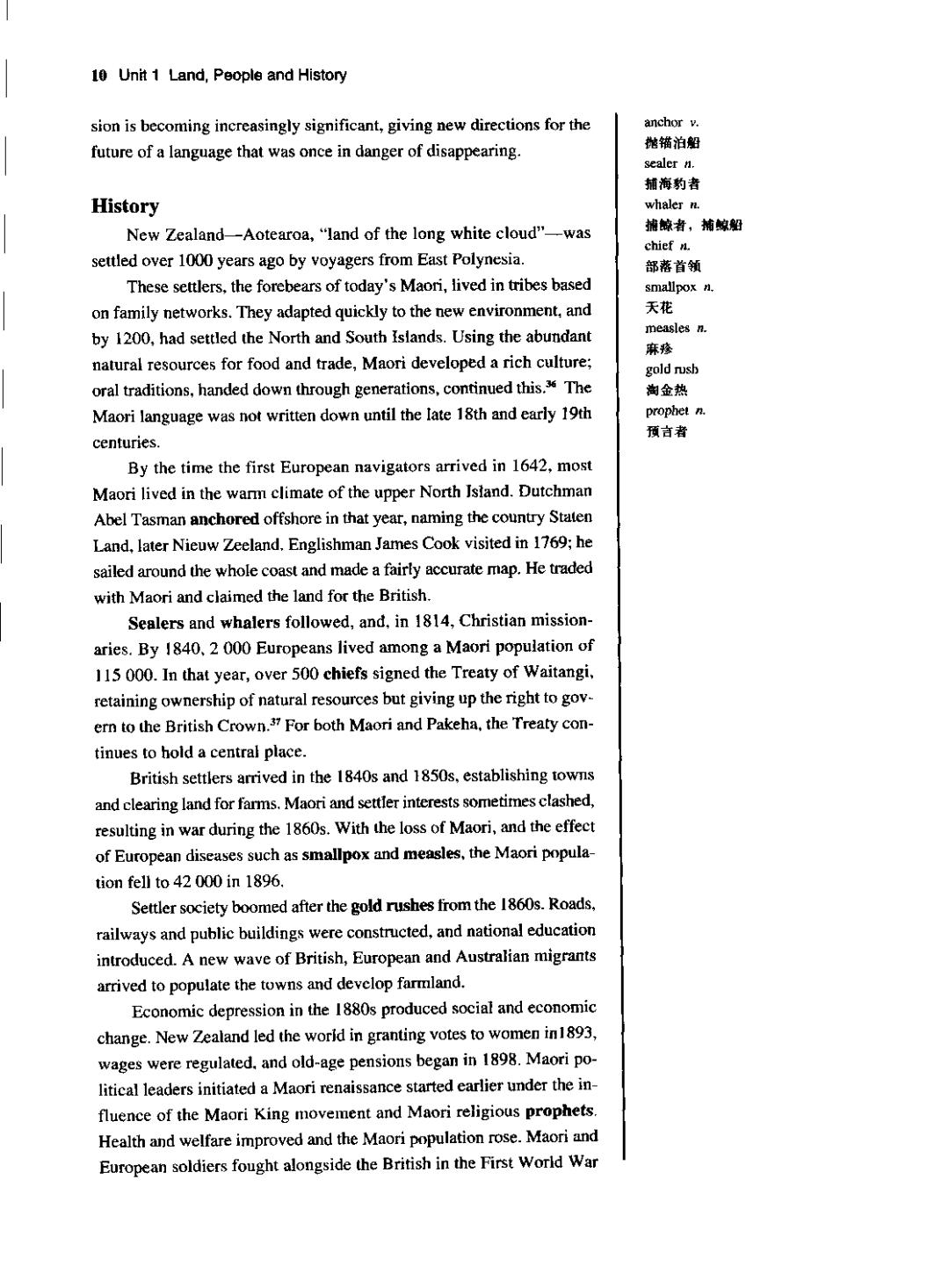正在加载图片...

10 Unit 1 Land,People and History sion is becoming increasingly significant,giving new directions for the anchor v. future of a language that was once in danger of disappearing. 抛锚泊船 sealer n. 捕海豹者 History whaler n. New Zealand-Aotearoa,"land of the long white cloud"-was 捕脉者,辅鲸船 chief n. settled over 1000 years ago by voyagers from East Polynesia. 部落首领 These settlers,the forebears of today's Maori,lived in tribes based smallpox n. on family networks.They adapted quickly to the new environment,and 天花 by 1200,had settled the North and South Islands.Using the abundant measles n. 麻疹 natural resources for food and trade,Maori developed a rich culture; gold rush oral traditions,handed down through generations,continued this.The 淘金热 Maori language was not written down until the late 18th and early 19th prophet n. 预言者 centuries. By the time the first European navigators arrived in 1642,most Maori lived in the warm climate of the upper North Istand.Dutchman Abel Tasman anchored offshore in that year,naming the country Staten Land,later Nieuw Zeeland.Englishman James Cook visited in 1769;he sailed around the whole coast and made a fairly accurate map.He traded with Maori and claimed the land for the British. Sealers and whalers followed,and,in 1814,Christian mission- aries.By 1840,2 000 Europeans lived among a Maori population of 115 000.In that year,over 500 chiefs signed the Treaty of Waitangi, retaining ownership of natural resources but giving up the right to gov- ern to the British Crown.37 For both Maori and Pakeha,the Treaty con- tinues to hold a central place. British settlers arrived in the 1840s and 1850s,establishing towns and clearing land for farms.Maori and settler interests sometimes clashed, resulting in war during the 1860s.With the loss of Maori,and the effect of European diseases such as smallpox and measles,the Maori popula- tion fell to 42 000 in 1896. Settler society boomed after the gold rushes from the 1860s.Roads, railways and public buildings were constructed,and national education introduced.A new wave of British,European and Australian migrants arrived to populate the towns and develop farmland. Economic depression in the 1880s produced social and economic change.New Zealand led the worid in granting votes to women in1893, wages were regulated,and old-age pensions began in 1898.Maori po- litical leaders initiated a Maori renaissance started earlier under the in- fluence of the Maori King movement and Maori religious prophets. Health and welfare improved and the Maori population rose.Maori and European soldiers fought alongside the British in the First World War